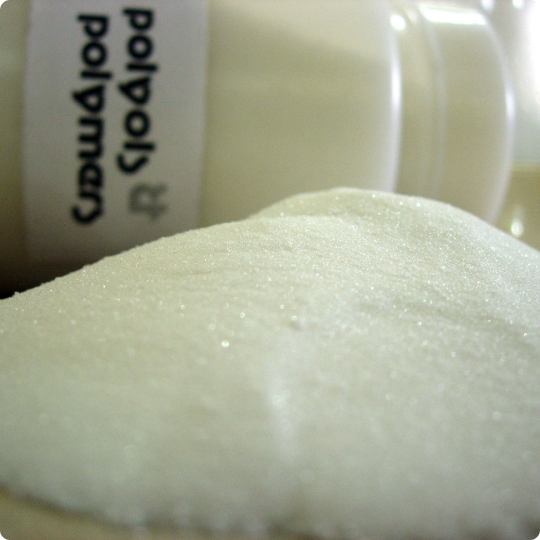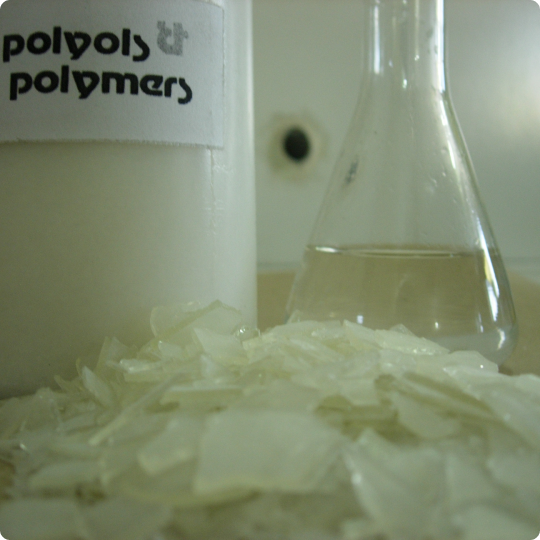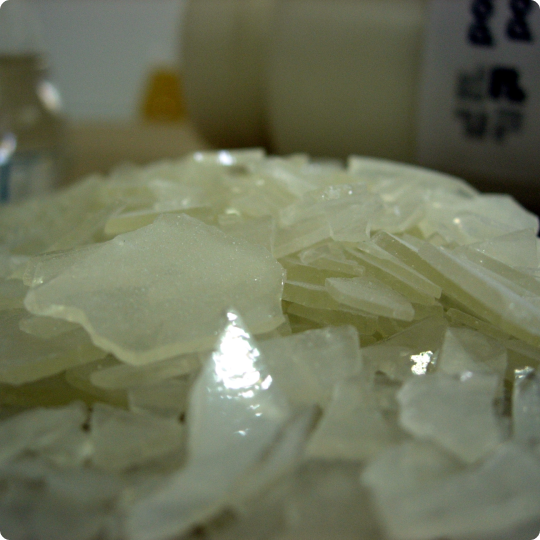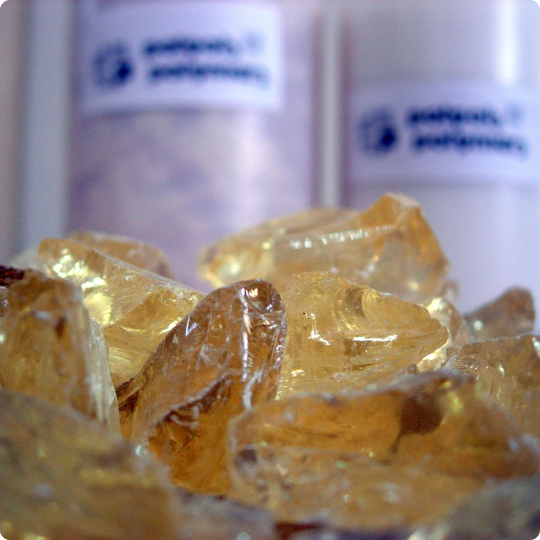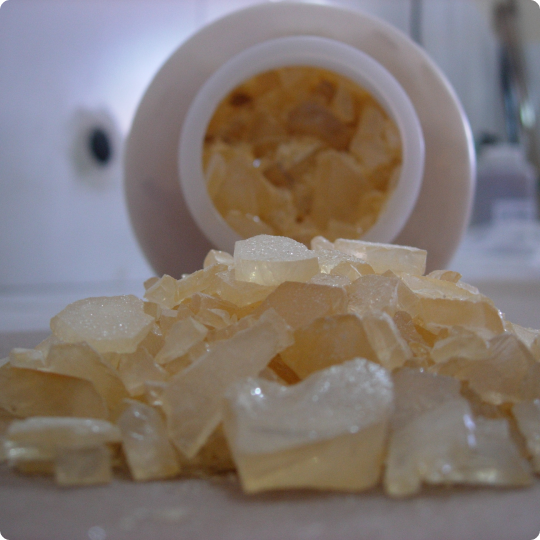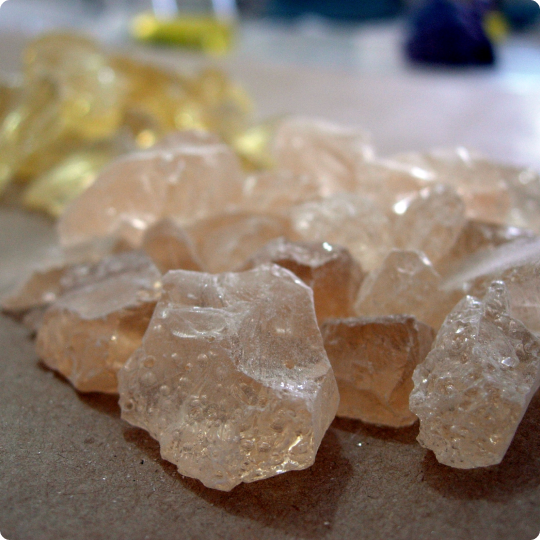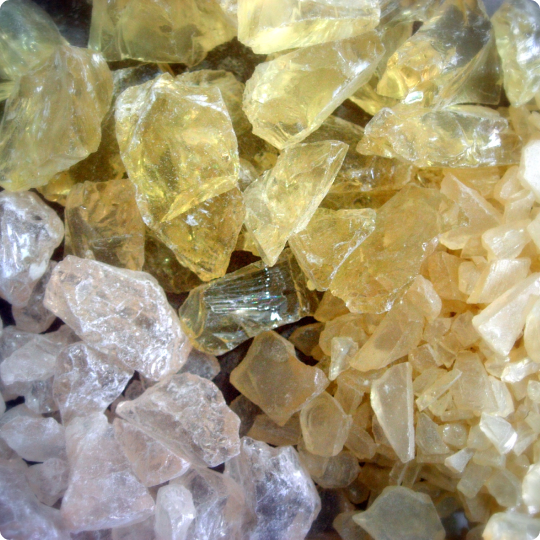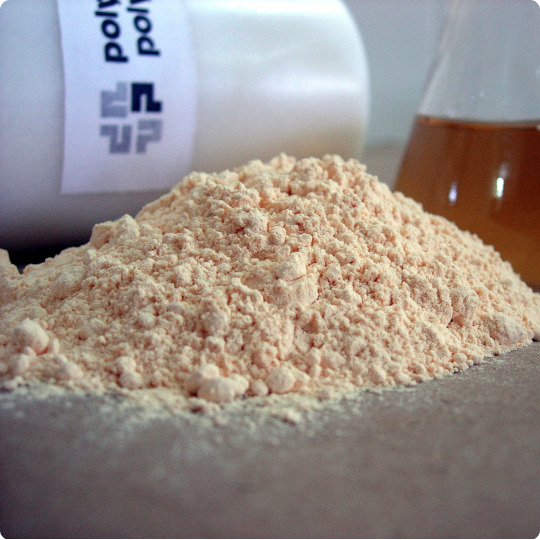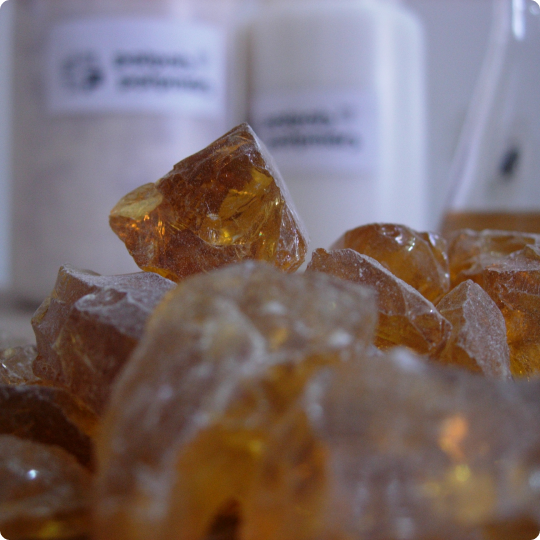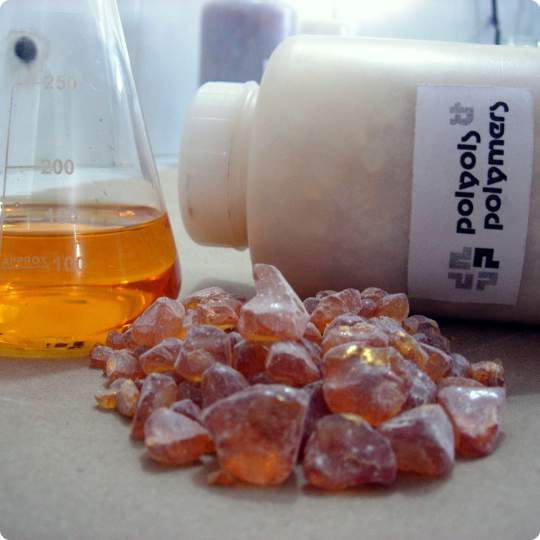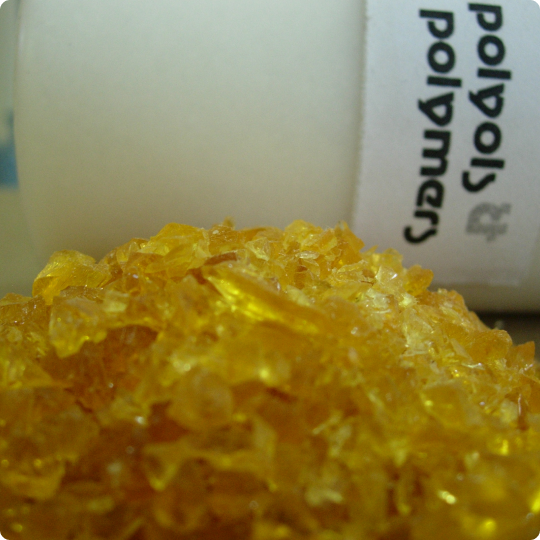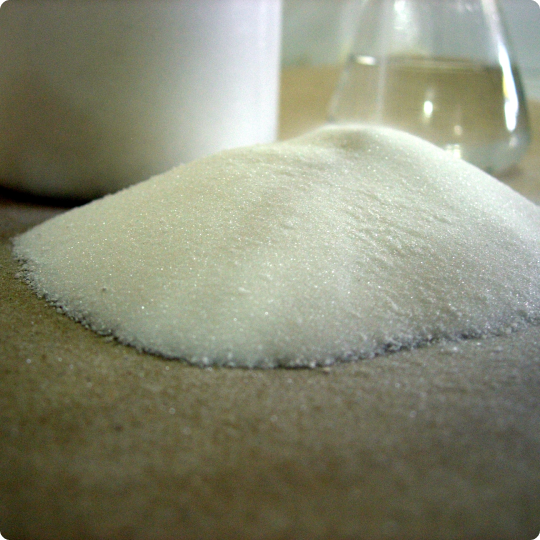Alkyl Phenol & Phenolic Resins (Tire & Rubber)
The premium grade synthetic resins offered by us has received wide acceptance across the world. About 75% of our entire products range and more than 95% of our POLYTONE® AP Series Alkyl Phenol Resins are exported. We have distributors across 5 Continents and customers globally.
We are a trusted name and offer only quality range of synthetic resin to our clients. Owing to our professional approach, quality products and services, we have become the most preferred choice of our clients
POLYTONE Resins are manufactured under strict ISO 9001:2015 QMS Certified Plants.
-
Phenolic Resins for Rubber
Polyols & Polymers Pvt.Ltd. via its POLYTONE ® range of resins offers a broad range of technical resins specifically designed for the needs of the tire industry that are also used in related industries by rubber compounders.
| POLYTONE ® | Butyl Curing | Tackifier | Reinforcement | |
|---|---|---|---|---|
| AP 113 | PtOP Resol | ✔ | ||
| AP 113 A | PtOP Resol | ✔ | ||
| AP 120 | PtBP Novolak | ✔ | ||
| AP 120 H | PtBP Novolak | ✔ | ||
| AP 120 E | PtBP Novolak | ✔ | ||
| AP 1201 E | PtBP Novolak | ✔ | ||
| AP 121 | PtBP Novolak | ✔ | ||
| AP 121 H | PtBP Novolak | ✔ | ||
| AP 130 | Mod.Phenol Novolak | ✔ | ||
| AP 131 | Mod.Phenol Novolak | ✔ | ||
| AP 132 | PF Novolak | ✔ | ||
| AP 1321 | PF Novolak | ✔ | ||
| AP 133 | Mod.Phenol Novolak | ✔ | ||
| PF 132 | PF Novolak | ✔ | ||
| PF 420 | PF Novolak | ✔ | ||
| PF 425 | PF Novolak | ✔ | ||
| PF 200 | 2 Part PF Novolak | ✔ | ||
-
Butyl Curing
POLYTONE® AP 113 and AP 113 A are heat reactive octylphenol-formaldehye resins that contains methylol groups. Its formulated for the cure system of Butyl (Isobutylele-Isoprene) rubber by resin curing system.
Compatibility with other elastomers is good due to the presence of octyl group and can be used to make cements with wide range of properties. It can also be used to formulate pressure sensitive adhesives, Inks and thermoplastic elastomers. The reactive methylol groups offers “functional sites” for various reactions like with rosin in printing inks.
The reactive methylol groups offers “functional sites” for various reactions like with rosin in printing inks. POLYTONE® AP 113 and AP 113A can also be used in in manufacture of solvent based adhesives.
| BUTYL CURING RESIN/OCTYL PHENOL BASED RESIN | ||
|---|---|---|
| POLYTONE® AP 113 | POLYTONE® AP 113A | |
| Chemical Classification | Octyl Phenol (PtOP) Formaldehyde Resol Resin | Octyl Phenol (PtOP) Formaldehyde Resol Resin |
| Type | Heat Reactive/Vulcanizing/Curing Thermosetting | Heat Reactive/Vulcanizing/Curing Thermosetting |
| Colour | Pale Yellow | Pale Yellow |
| Softening Point (Ball & Ring) | 72 – 80 °C | 70 – 90 °C |
| Methylol Content | 08 – 11 % | 08 – 11 % |
| Moisture Content | ≤ 0.5 % | ≤ 0.5 % |
| Characteristics | Good Compatibility / Enhances Crosslinking / Light Color / Can be used in Adhesive Formulation Also | |
| Solubility | Soluble in aromatic solvents including toluene, benzene, ketones, chlorinated hydrocarbons, ketones, higher alcohols and naphthas | |
| Benefits | Provides rapid curing at normal curing temperatures and also accelerates cure at lower temperatures. The long chain of this alkyl phenolic resin provides good compatibility with butyl, natural, nitrile, polychloroprene, EPDM | |
| Application / Industry | Tyre/Tire Building, Conveyer Belting, Rubber Hose Manufacture, Rubber Lining, Rubber Adhesives and many more | |
-
Tackifier
POLYTONE® AP Tackifier Range are alkylphenol-modified, thermoplastic, phenolic resin. These products are designed to impart building tack toward synthetic rubbers like SBR. POLYTONE® AP Tackifier resins are non heat reactive Its oil-soluble and hence shows compatibility with various synthetic rubbers.
They are also used in ply cements by formulating into solvent based adhesives. Widely accepted as a replacement of Hydrocarbon Resins and used in pressure sensitive adhesives.Reduces usage of Hydrocarbon Resin by 66%.
| Properties | ||||
|---|---|---|---|---|
| Product Name POLYTONE ® | Product Name POLYTONE ® | Non Heat Reactive | Butyl Phenol Based (PtBP) | Octyl Phenol Based (PtOP) |
| AP 120 | ✔ | ✔ | ✔ | |
| AP 120 H | ✔ | ✔ | ✔ | |
| AP 120 E | ✔ | ✔ | ✔ | |
| AP 1201 E | ✔ | ✔ | ✔ | |
| AP 121 | ✔ | ✔ | ✔ | |
| AP 121 H | ✔ | ✔ | ✔ | |
| Effect on Formulation | ||||
|---|---|---|---|---|
| Product Name POLYTONE ® | Building Tack Interply Adhesion | Chemical & Weather Resistance | Plasticizer Property | Economical |
| AP 120 | ★★★ | ★★★ | ★★★ | ★★★★ |
| AP 120 H | ★★★ | ★★★ | ★★★ | ★★★★ |
| AP 120 E | ★★ | ★★★★ | ★★ | ★★★ |
| AP 1201 E | ★★ | ★★★★★ | ★★ | ★★★ |
| AP 121 | ★★★★★ | ★★ | ★★★★★ | ★★ |
| AP 121 H | ★★★★ | ★★ | ★★★★ | ★★ |
| Typical Uses | ||||
|---|---|---|---|---|
| Product Name POLYTONE ® | Rubber & Tire | Adhesives/ Tacky Tapes | Wire Enamels & Varnish | Paints & Inks |
| AP 120 | ★★★★ | ★★★ | ★★ | ★★★★ |
| AP 120 H | ★★★★ | ★★ | ★★ | ★★★★ |
| AP 120 E | ★★★ | ★ | ★★★★★ | ★★★ |
| AP 1201 E | ★★★ | ★ | ★★★★★ | ★★★ |
| AP 121 | ★★★★★ | ★★★★ | ★ | ★★ |
| AP 121 H | ★★★★★ | ★★★★ | ★ | ★★ |
-
Tackifier
POLYTONE® AP 120 and AP 120 H are Butyl Phenol based Novolak Phenolic Tackifier. They are designed to provide a economical solution to formulators. Though their performance is lower compared to the Octyl Phenol based (POLYTONE® AP 121/121H) products, their cost effective ness makes them a competitive choice. They can be readily used to replace Hydrocarbon Resin in the formulation.
| TACKIFIER / TACKIFYING/INSULATING | ||
|---|---|---|
| POLYTONE® AP 120 | POLYTONE® AP 120 H | |
| Chemical Classification | Butyl Phenol (PtBP) Formaldehyde Novolak Resin | Pure Phenolic Resin (Novolak) |
| Type | Non Heat Reactive /Tackifying Thermoplastic | Non Heat Reactive /Tackifying Thermoplastic |
| Colour | Pale Yellow/Light Reddish Brown | Pale Yellow/Light Reddish Brown |
| Colour Gardner (60% Soln in Xylene) | 8 Max | 8 Max |
| Softening Point (Ball & Ring) | 92 – 103 °C | 98 – 110 °C |
| Acid Value | 42 mg KOH/ g resin (Max) | 60 mg KOH/ g resin (Max) |
| Characteristics |
|
|
| Solubility | These are oil soluble phenolic resin. It has complete solubility in all vegetable oils, aromatics, ketones soluble in esters, ketones, aromatic and aliphatic chlorinated hydrocarbons. It has limited solubility in aliphatic Insoluble in alcohols. | |
| Benefits | Excellent compatibility in synthetic and natural rubbers. Blends easily into rubber stocks These shall provide resistance against weather, alkali, water and abrasion These can be used to increase the open time in solvent based polychloprene adhesives without affecting other properties | |
| Application / Industry | Tyre /Tire Building, Conveyor Belts, Rubber Hose, Rubber Lining, Rubber Mats, Rubber Sheets, Reinforced Rubber, Fabric Lined Rubber, Rubber Adhesives. Weather resistant finishes, Spar Varnishes, Cold-Mix Varnishes | |
-
Tackifier
POLYTONE ® AP 1201 E and AP 120 E are a non heat reactive thermoplastic phenolic resin with excellent alcohol solubility. It is quick drying, has excellent color retention and is resistant to weathering, alkalis, water and abrasion. It is designed to develop high tack levels in rubber compounds which are usedin tyre construction and mechanical goods.
POLYTONE® AP 1201 E and AP 120 E finds its use in tung-oil based varnishes processed at 450°C.
POLYTONE® AP 1201 E and AP 120 E will add surface harness to polyamide-based inks.
| TACKIFIER / TACKIFYING/INSULATING | ||
|---|---|---|
| POLYTONE® AP 1201 E | POLYTONE® AP 120 E | |
| Chemical Classification | Pure Phenolic Resin (Novolak) | Pure Phenolic Resin (Novolak) |
| Type | Non Heat Reactive / Tackifying Thermoplastic | Non Heat Reactive / Tackifying Thermoplastic |
| Colour | Light Reddish Brown | Pale Yellow/Light Reddish Brown |
| Colour Gardner (60% Soln in Xylene) | 12 Max | 8 Max |
| Softening Point (Ball & Ring) | 135 – 145 °C | 150 – 165 °C |
| Acid Value | 100 mg KOH/ g resin (Max) | 100 mg KOH/ g resin (Max) |
| Characteristics |
|
|
| Solubility | These are oil soluble phenolic resin. It has complete solubility in all vegetable oils, aromatics, ketones soluble in esters, ketones, aromatic and aliphatic chlorinated hydrocarbons. It has limited solubility in aliphatic Insoluble in alcohols. | |
| Benefits | Excellent compatibility in synthetic and natural rubbers. Blends easily into rubber stocks These shall provide resistance against weather, alkali, water and abrasion These can be used to increase the open time in solvent based polychloprene adhesives without affecting other properties | |
| Application / Industry | Tyre /Tire Building, Conveyor Belts, Rubber Hose, Rubber Lining, Rubber Mats, Rubber Sheets, Reinforced Rubber, Fabric Lined Rubber, Rubber Adhesives. Weather resistant finishes, Spar Varnishes, Cold-Mix Varnishes | |
-
Reinforcing
POLYTONE® AP Reinforcing Resins are usually used in conjugation with methylene donor like Hexa. They are available with and without methylene donors. Most wide use in in the apex of tires or in rubber compounds which require hardness.
| Properties | ||||
|---|---|---|---|---|
| Product Name POLYTONE ® | Thermoplastic | Methylene Donor Required | Alkyl Phenol Based | Pure Phenol Based |
| AP 130 | ✔ | ✔ | ✔ | |
| AP 131 | ✔ | ✔ | ✔ | |
| AP 132 | ✔ | ✔ | ✔ | |
| AP 1321 | ✔ | ✔ | ✔ | |
| AP 133 | ✔ | ✔ | ✔ | |
| PF 132 | ✔ | ✔ | ✔ | |
| PF 420 | ✔ | ✔ | ✔ | |
| PF 425 | ✔ | ✔ | ✔ | |
| PF 200 | 2 Component | ✔ + Catalyst | ||
| PF 201 | 2 Component | ✔ + Catalyst | ||
| Effect on Formulation | ||||
| Product Name POLYTONE ® | Hardness & Chip Resistance | Suitability for Tire Beads & Treds | Reinforcing | Processing Temperature |
| AP 130 | ★★★ | ★★★ | ★★★★ | ★★★★ |
| AP 131 | ★★★ | ★★★ | ★★★★ | ★★★★ |
| AP 132 | ★★★★★ | ★★★★★ | ★★★★★ | ★★★ |
| AP 1321 | ★★★★★ | ★★★★★ | ★★★★★ | ★★★ |
| AP 133 | ★★★ | ★★★★ | ★★★ | ★★★ |
| PF 132 | ★★★★★ | ★★★★★ | ★★★★★ | ★★★ |
| PF 420 | ★★ | ★★ | ★★ | ★★★★ |
| PF 425 | ★★ | ★★ | ★★ | ★★★★ |
| PF 200 | ★★★★ | ★★ | ★★★★ | ★★★★ |
| PF 201 | ★★★★★ | ★★★ | ★★★★ | ★★★★ |
| Typical Usage | ||||
| Product Name POLYTONE ® | Rubber & Tire | Epoxy Co Reactant | Abrasives & Emery | Paints & Inks |
| AP 130 | ★★★★ | ★★★ | ||
| AP 130 | ★★★★ | ★★★ | ||
| AP 132 | ★★★★★ | ★★ | ★★ | ★★★★ |
| AP 1321 | ★★★★★ | ★★★★★ | ★★ | ★★★★ |
| AP 133 | ★★★★ | ★ | ||
| PF 132 | ★★★★★ | ★★★★★ | ★★ | ★★★ |
| PF 420 | ★★ | ★★★★★ | ★★ | ★★★ |
| PF 425 | ★★ | ★★★★★ | ★★ | ★★★ |
| PF 200 | ★★★★ | ★★★★★ | ||
| PF 201 | ★★★★ | ★★★★★ | ||
| ★★★★★ :Excellent | ★★★★: Good | ★★★:Fair | ★★: Moderate | ★: Poor |
-
Reinforcing
POLYTONE® AP Reinforcing Resins are usually used in conjugation with methylene donor like Hexa. Most wide use in in the apex of tires or in rubber compounds which require hardness.
POLYTONE® AP 130/131/133 are manufactured using modified phenols to provide required property
POLYTONE® AP 131 is particularly suited for industrial tread Applications such as farm, off the road, mining and truck tires. Tread compounds with 5-10 PHR of AP 131 cross linked with a methylene donor shall have excellent cut and chip resistance along with excellent abrasion resistance and high hardness.
| RUBBER REINFORCING | |||
|---|---|---|---|
| POLYTONE® AP 130 | POLYTONE® AP 131 | POLYTONE® AP 133 | |
| Chemical Classification | Butyl Phenol (PtBP) Formaldehyde Novolak Resin | Phenol – Octyl Phenol (PtOP) Formaldehyde Novolak Resin | Phenol -Butyl Phenol (PtBP) Formaldehyde Novolak Resin |
| Type | Non Heat Reactive / Thermoplastic | Non Heat Reactive / Thermoplastic | Non Heat Reactive / Thermoplastic |
| Colour | Pale Yellow/light Reddish Brown | Pale Yellow/light Reddish Brown | Pale Amber |
| Softening Point (Ball & Ring) | 90 – 103 °C | 90 – 105 °C | 100 – 110 °C |
| Methylol Content | – | 1.0% Max | – |
| Acid Value | 45 mg KOH/ g resin (Max) | 45 mg KOH/ g resin (Max) | 45 mg KOH/ g resin (Max) |
| Free Phenol | 1.0% Max | 1.0% Max | 0.50% Max |
| Ash Content | 1.0% Max | 1.0% Max | 0.02% Max [@850°C] |
| Characteristics |
|
||
| Solubility | Soluble in esters, ketones, aromatic and aliphatic chlorinated hydrocarbons. Insoluble in higehr alcohols | ||
| Application/Industry | Used as a reinforcing resin in tire beads, shoe soles, apex strips and co-extruded window profiles. Tyre /Tire Building, Conveyor Belts, Rubber Hose, Rubber Lining, Shoe Soles, Apex Strips, Tire Beads, Tire Treads, Rubber Mats, Rubber Sheets, Reinforced Rubber, Fabric Lined Rubber, Rubber Adhesives, Rubber Goods and many more. | ||
-
Reinforcing
POLYTONE® Resins which are on unmodified phenols provides higher hardness compared to other products They are designed to give a consistent performance as a reinforcing resin in synthetic and natural rubber based goods that require high hardness, excellent chip and abrasion resistance when cross linked with a methylene donor. There are used as a reinforcing resin in tire beads, shoe soles, apex strips and co-extruded window profiles
POLYTONE® PF 132 can be used as an epoxy-phenolic co reactant in wide range of epoxy co reactant applications like laminates, adhesives and coatings
POLYTONE® PF 132 can also be used in varnishes, insulations, inks and coatings
POLYTONE® PF 425 and POLYTONE ® PF 420 are Non Heat Reactive/Thermoplastic Phenol –Formaldehyde Novolak Resins POLYTONE® PF 420 is a high purity Non Heat Reactive/Thermoplastic Phenol – Formaldehyde Novolak Resin with low softening point.
| Rubber Reinforcing/epoxy Co Reactant | |||
|---|---|---|---|
| POLYTONE® AP 132 | POLYTONE® AP 1321 | POLYTONE® PF 132 | |
| Chemical Classification | Phenol Formaldehyde Resin (Novolak) | Phenol Formaldehyde Resin (Novolak) | Phenol Formaldehyde Resin (Novolak) |
| Type | Non Heat Reactive / Thermoplastic | Non Heat Reactive / Thermoplastic | Non Heat Reactive/ Thermoplastic |
| Colour | Pale Yellow/light Reddish Brown | Pale Yellow/light Reddish Brown | Pale Yellow/light Reddish Brown |
| Softening Point (Ball & Ring) | 110 – 116 °C | 90 – 100 °C | 100 – 116 °C |
| Methylol Content | – | 1.0% Max | – |
| Free Phenol | 1.0% Max | 1.0% Max | 0.50% Max |
| Ash Content | 1.0% Max | 1.0% Max | 0.02% Max [@850°C] |
| Characteristics |
|
||
| Solubility | Soluble in esters, ketones, aromatic and aliphatic chlorinated hydrocarbons. Insoluble in higehr alcohols | ||
| Application/Industry | Used as a reinforcing resin in tire beads, shoe soles, apex strips and co-extruded window profiles. Tyre /Tire Building, Conveyor Belts, Rubber Hose, Rubber Lining, Shoe Soles, Apex Strips, Tire Beads, Tire Treads, Rubber Mats, Rubber Sheets, Reinforced Rubber, Fabric Lined Rubber, Rubber Adhesives, Rubber Goods and many more. Can be used as an epoxy-phenolic co reactant in wide range of epoxy co reactant applications like laminates, adhesives and coatings Can also be used in varnishes, insulations, inks and coatings | ||
-
Product Range
| Reinforcing | ||
|---|---|---|
| REINFORCING/EPOXY CO REACTANT | ||
| POLYTONE® PF 425 | POLYTONE® PF 420 | |
| Chemical Classification | Phenol Formaldehyde Resin (Novolak) | Phenol Formaldehyde Resin (Novolak) |
| Type | Non Heat Reactive / Thermoplastic | Non Heat Reactive / Thermoplastic |
| Colour | Pale Yellow/Light Reddish Brown | Pale Yellow/Light Reddish Brown |
| Softening Point (Ball & Ring) | 110 – 120 °C | 80 – 90 °C |
| Free Phenol | 5% | 2% |
| Characteristics |
|
|
| Solubility | POLYTONE® PF 425/420 is soluble in alcohols, esters, ketones, aromatic and aliphatic chlorinated hydrocarbons. | |
| Application / Industry | Tyre /Tire Building, Conveyor Belts, Rubber Hose, Rubber Lining, Rubber Mats, Rubber Sheets, Reinforced Rubber, Fabric Lined Rubber, Rubber Adhesives. POLYTONE® PF 425 and POLYTONE® PF 420 can be used as an epoxy-phenolic co reactant in wide range of epoxy co-reactant applications like laminates, adhesives and coatings POLYTONE® PF 425 and POLYTONE® PF 420 can also be used in varnishes and inks | |
| REINFORCING/2 COMPONENT RESIN/ | ||
| POLYTONE® PF 200 | POLYTONE® PF 201 | |
| Chemical Classification | Phenol Formaldehyde Resin with Hexa | Phenol Formaldehyde Resin with Hexa |
| Type | Heat Reactive/2 Step mixed with Hexa | Heat Reactive/2 Step mixed with Hexa |
| Colour | Cremish Yellow | Cremish Yellow |
| Melting Point (Capillary) | 75° C – 90 ° C | 70° C – 85 ° C |
| Inclined Plate Flow @ 125° C | 30 – 35mm | 30 – 45mm |
| Hot Plate Cure @ 150° C | 75 – 100 seconds | 40 – 65 seconds |
| Sieve Analysis (200 Mesh) | 90 – 95% Min | 96 – 99% Min |
| Hexa Content | 9 – 10 % | 7.5 – 8.5 % |
| Free Phenol | 2 % Max | 2 % Max |
| Characteristics |
|
|
| Solubility | POLYTONE® PF 200/201 is soluble in alcohols, esters, ketones, aromatic and aliphatic chlorinated hydrocarbons. | |
| Application/ Industry | Tires and technical rubber goods use straight phenolic novolac resins as reinforcing agents. Abrasives, Emry Wheels, Composites, Refractory, Cured phenolic resins demonstrate exceptional chemical resistance as coatings | |
-
Product Range
| Alkyl Phenolic Resins (Resol and Novolak) | POLYTONE® AP Series |
| Phenol Formaldehyde Resins | POLYTONE® PF Series |
| Ketone Formaldehyde Resins | POLYTONE® K Series |
| Acetophenone Formaldehyde Resins | POLYTONE® K -88 Series |
| Urea Aldehyde Resins | POLYTONE® UA Series |
| Maleic & Fumaric Resins | POLYTONE® M Series |
| Modified Rosin Ester | POLYTONE® MPE Series |
| Modified Phenolic Resins | POLYTONE® P Series |
| Polyamide Resins | POLYTONE® PA Series |
| Thermoplastic Acrylic Resins | POLYTONE® ABR Series |

